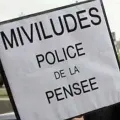Brainwashing, Italian-Style: “It Does Not Exist,” Said the Constitutional Court
by Massimo Introvigne — In the previous articles, we discussed how article 603 of the Fascist Criminal Code of 1930 incriminated what would be later called “brainwashing,” and how its use in 1968 against Aldo Braibanti, a gay Marxist philosopher accused of “brainwashing” its pupils into homosexuality, generated a long-lasting controversy. Today in Italy many of the older generation confuse in their memories the Braibanti case and the Grasso case that occurred ten years later, in 1978. Many “remember” that it was the Braibanti case that brought the Italian Constitutional Court to declare the illegitimacy of the crime of plagio, but their memories are failing them. The Constitutional Court never reviewed the Braibanti case. It did, however, review the case of Father Emilio Grasso, a Catholic priest and the leader of a Catholic community called Redemptor Hominis.
























